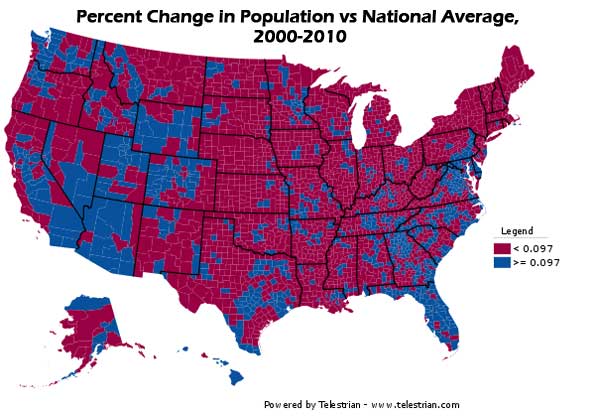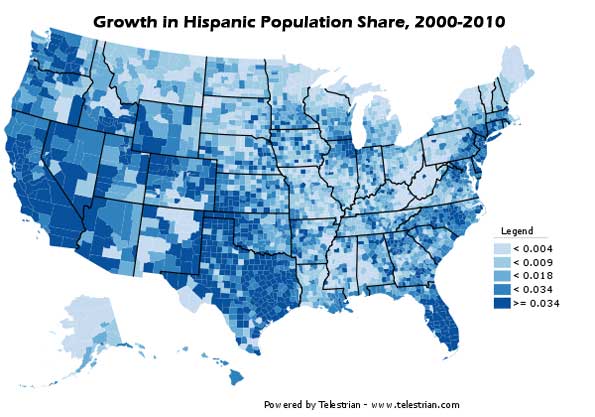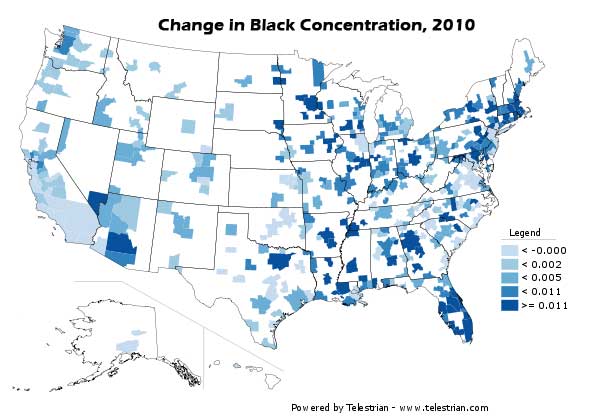
According to newly released census data, Americans are fleeing the Great Plains for sunnier climes in record numbers, the decades-long trend only accelerating in the 21st century.
The data, as mapped by the site New Geography, shows that North Dakota, South Dakota, Nebraska, and Kansas all had more counties with total population decreases than increases between 2000 and 2010. Meanwhile, southern California, southern Nevada--especially the Las Vegas area--Arizona, Florida, and eastern Texas all saw big population gains.

The metro areas that grew the fastest were all in the west or south. In descending order, they were: Las Vegas, Nevada; Raleigh, N.C.; Austin, Texas; Charlotte, N.C.; Riverside, Calif.; Orlando, Fla.; Phoenix, Ariz.; Houston, Texas; and San Antonio, Texas.
The data also offer information about changes in America's racial makeup. Many of the counties that saw the largest increases in their Hispanic populations were in traditional Hispanic strongholds, including southern California, Arizona, and south Florida. But others were more surprising: Counties in eastern Oregon, Idaho, Wyoming, Kansas, and Oklahoma all saw an influx of Hispanics, reflecting a trend over the last decade in which many recent Latino immigrants have spread beyond urban centers like Los Angeles and Phoenix into more rural parts of the country.

America's African-America population, too, saw changes. In a reverse of the Great Migration of the 1920s-50s, many younger and more educated blacks moved out of the declining industrial centers of midwestern states like Michigan and Illinois and back to the south, including areas of Florida, Georgia, and even Mississippi. Atlanta replaced Chicago as the metro area with the largest number of blacks, after New York. Today, 57 percent of black Americans live in the south -- the highest percentage since 1960.

(A Hispanic family walks past a mural in East Los Angeles, August 2000.: Damian Dovarganes/AP)

No comments:
Post a Comment